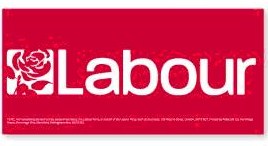4 April 2024
Labour
Big tent or division?
By Robert Kilconner
The clock strikes 13 times, the smile is a bit too ready, the assurance that this time it will be different – all warning signs that things are not as good as they seem, that the ice is thinner than you thought and that it is not a time to be too trusting. We all develop an ability to spot the danger signals in our ordinary life and we need to spot them in our political lives too.
Later this year or early in next, we will have a new government and the electorate will choose the Labour party to form it. They will probably be right to do so. The Tories, however worthy their current leadership, are a spent force and we have all had enough of the manoeuvrings of the supporting cast of Trusses, Moggs and Badenochs and all the rest of them, to last us a lifetime. Away with them it will surely be and Sir Keir and his merry men will take over the government benches. It is, after all, Labour’s turn.
Does that mean that the political sky will clear, that there will be bluebirds over the white cliffs of Dover and that the nation will benefit from a tide of much-needed reform, taking us all to a better and more modern Britain? That rather depends, doesn’t it? Will the new government carry forward a programme designed to unite the nation or will it dissolve into factions playing political games to increase their own influence? We have certainly seen the Tories go that way and most of us have a “little list” of those whose influence we regard as destructive or pernicious. What evidence is there as to whether Labour will form a unifying government, working to carry us forward together, or a collection of pointscoring, divisive interest groups?
Fortunately we do not have proportional representation so it is likely that Labour will obtain a clear majority and not be subject to the eccentric whims of a coalition partner. Coalitions by their nature involve factionalism as the minority partners struggle to assert themselves and, although this pressure can be resisted by determined leadership (Clegg and Cameron did quite well in this respect), that isn’t the usual result and posturing within the government soon blunts any reforming edge. But even given a comfortable Labour majority, how is that likely to translate into pulling the country forward together?
Any programme of reform is likely to involve some reallocation of resources and that will involve losers as well as winners. To an extent that is divisive, but if the losers can see that what is being done is being done for the national good then that takes the edge off any resentment. What are far more destructive are things done to settle scores or to create losers without any corresponding benefit to society.
Those who have seen the 2009 film Invictus will recall Nelson Mandela’s rejection of the suggestion that the name of the Springboks should be changed. True, they were an emblem from apartheid South Africa but they were also part of the sporting legend about which a large part of the community really cared. Why alienate them unnecessarily? How much better to use support for the team as a source of reassurance to those worried about the pace of reform. Yes, things would change but not in a wantonly destructive way.
Now let us look at the programme of the Labour Party through the same lens. There are two ominous straws in the wind. One is an undertaking to tighten the rules against hunting, a clear case of urban socialism asserting itself over rural Conservatism. The second is the proposal to charge VAT on private school fees. The rationale behind the latter change is distinctly odd. It is put forward as a way of ending a tax break as though the provision of education is naturally something which should attract VAT. In fact, of course, education is free of VAT throughout the EU on the grounds that it is generally good for the community to educate citizens as well as possible. To describe that as a tax break is peculiar and makes one suspect that the change is really just intended as one in the eye for those who choose and can afford private education. If, of course, the reduction in the private educational sector would, through reallocation of resources, improve the offering of publicly owned schools, the change could be justified as being in the national interest. But who believes that is really the case? To destroy what works best on the basis that it will strengthen the rest of the sector is an error we have made before. That is why our universities are not full of grammar school educated children. Certainly the recent improvements in our state sector need to be maintained and built on, but the idea that this is best done by making the private sector prohibitively expensive is, like the talk of tax breaks, merely camouflage for a divisive blow which will please the Left. Apply the same logic in other areas and many of those who are about to vote Labour for the first time will end up thoroughly regretting it,
When Tony Blair came to power in 1997 there was a lot of talk about big tents and everyone participating in “Cool Britannia”. There was nothing wrong with that in itself but it led to a concern by the government to be liked by everybody which took away from its effectiveness. A new Labour government will need to accept some unpopularity as it forces through its reforms. That is understandable. But it will need to sell those reforms to the country as a whole and that means resisting doing things which are divisive or vindictive, however much they may please its factions.


